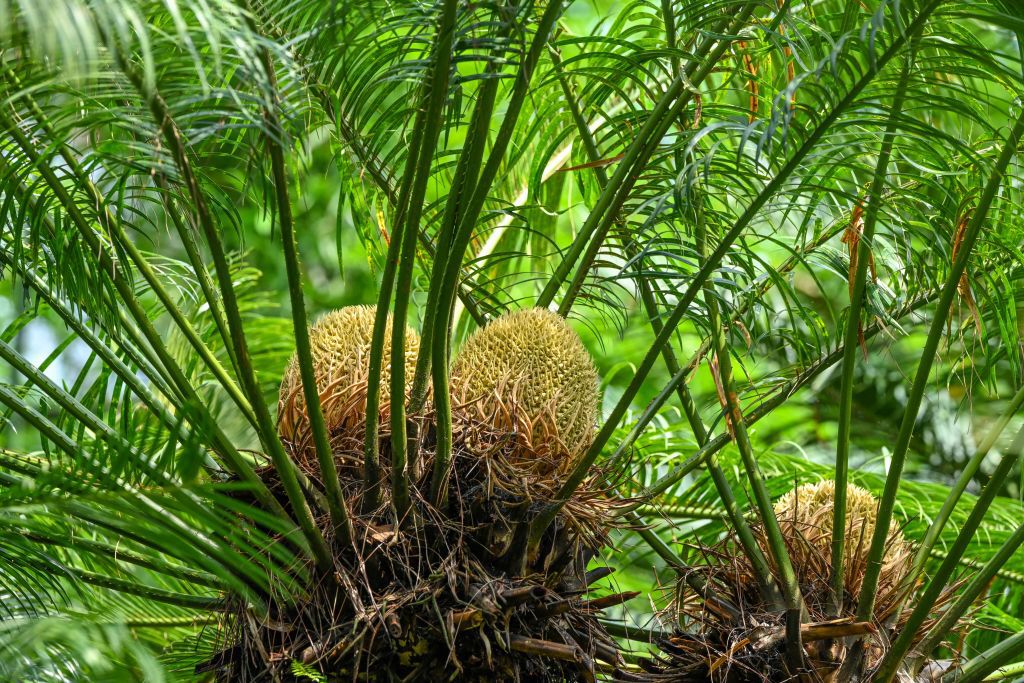Toxic Compound Found in Odisha’s Ancient Cycad Plants; AIIMS Bhubaneswar Begins Study on Its Health Risks

Bhubaneswar, November 4 In a major scientific discovery with serious health implications, researchers have identified a dangerous neurotoxin called BMAA (β-N-methylamino-L-alanine) in several species of ancient Cycad plants growing in the forests of Odisha. The finding was announced by AIIMS Bhubaneswar in an official press release on Monday. The presence of this toxin has raised public health concerns, as many local communities in Odisha still consume foods made from cycad plants. Traditional dishes such as pitha — a popular rice-based cake — sometimes include cycad ingredients as part of cultural customs and rituals. According to AIIMS Bhubaneswar, the institution has launched a detailed research project to study the toxicity of cycad plants and their potential connection to neurodegenerative diseases like Parkinsonism, motor neuron disease, and dementia. To deepen understanding of this link, the institute recently hosted an international workshop titled “Cycad-Related Neurological Disorders: A Multi-Dimensional Approach to Its Remediation.” The event was jointly organized by the Department of Neurology at AIIMS Bhubaneswar and the North-Eastern Hill University (NEHU), Shillong, bringing together prominent Indian and international scientists and medical specialists. During the workshop, experts discussed how cycads — plants that have existed for over 300 million years, even before the dinosaurs — pose health risks to humans. Although they are now often cultivated as ornamental plants, certain species of cycads naturally contain toxic compounds such as Cycacin, BMAA, and MAM (methylazoxymethanol). Scientific studies in other parts of the world, particularly in Guam (USA) and Kii Peninsula (Japan), have shown that long-term consumption of cycad-based food products can be associated with neurological disorders. These diseases affect the brain and nervous system, leading to symptoms similar to Parkinson’s disease or dementia. As part of the initiative, researchers and health experts conducted field visits to Khordha and Dhenkanal districts in Odisha — regions where communities are known to consume cycad-based food items. During these visits, the teams interacted directly with villagers, local healthcare workers, and patients, collecting valuable information about local food practices and any related health problems. The findings from these field studies will help scientists understand whether long-term consumption of cycad seeds might be linked to increasing cases of neurological illnesses in these regions. AIIMS Bhubaneswar emphasized that this research could play a vital role in public health awareness, helping local communities recognize the potential dangers of using cycad-based ingredients in their traditional diets. The institution also plans to collaborate with toxicologists, neurologists, and public health experts to develop preventive strategies and spread awareness about the safe handling of these ancient but hazardous plants. This discovery marks the beginning of a crucial step toward understanding how naturally occurring plant toxins may contribute to serious brain-related diseases — and how traditional food habits, if left unchecked, could pose hidden risks to community health. Hidden Danger in Odisha’s Ancient Plants: AIIMS Bhubaneswar Begins Research on Toxic Cycads A shocking discovery has come from Odisha’s forests — scientists at AIIMS Bhubaneswar have found a dangerous neurotoxin called BMAA in ancient Cycad plants. These plants, which have existed since the time of dinosaurs, are still used in some local foods, including traditional dishes like pitha. Experts warn that this toxin could be linked to serious brain diseases such as Parkinsonism, motor neuron disease, and dementia. To find answers, AIIMS Bhubaneswar has started detailed research to study the risks of consuming cycad-based foods. Recently, AIIMS Bhubaneswar and North-Eastern Hill University (NEHU), Shillong, hosted an international workshop to explore the link between cycads and neurological disorders. Scientists from India and abroad shared evidence showing that long-term use of these plants in food could cause nerve damage, as seen in places like Guam and Japan. Researchers also visited Khordha and Dhenkanal districts to meet villagers who still eat cycad-based foods, aiming to understand local health patterns. This study is a major step toward spreading awareness about hidden toxins in traditional diets and protecting community health.




